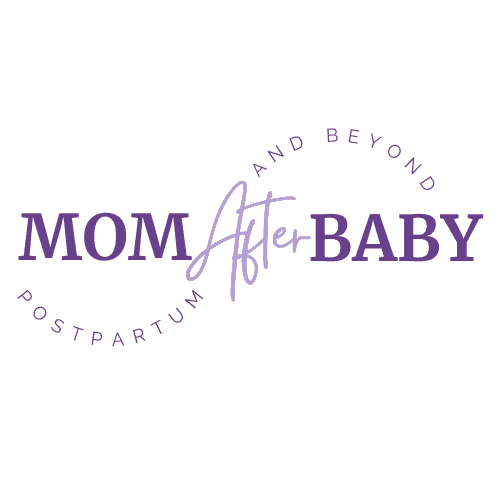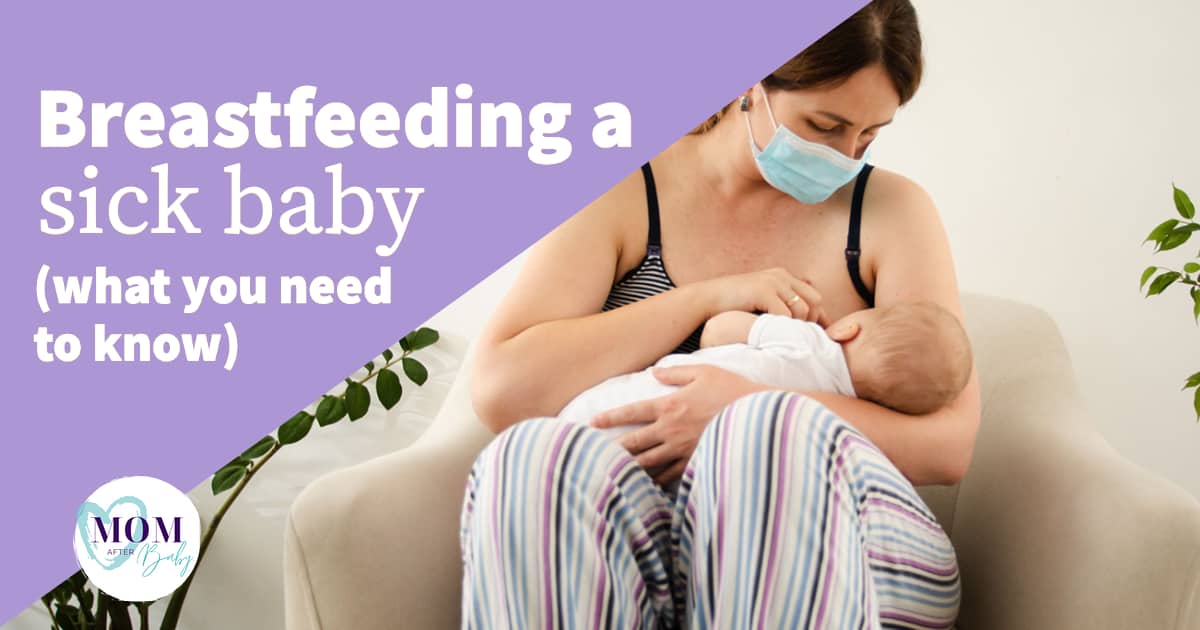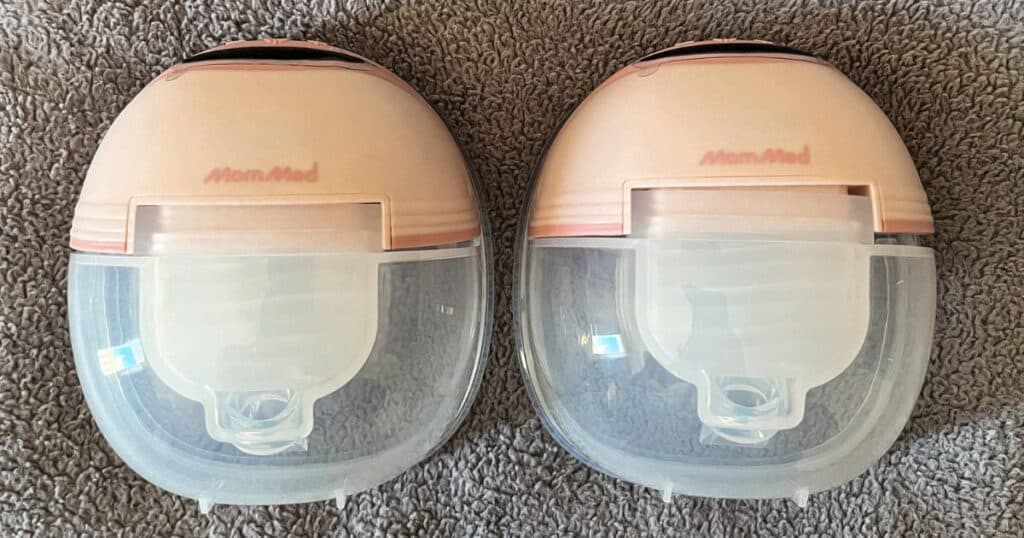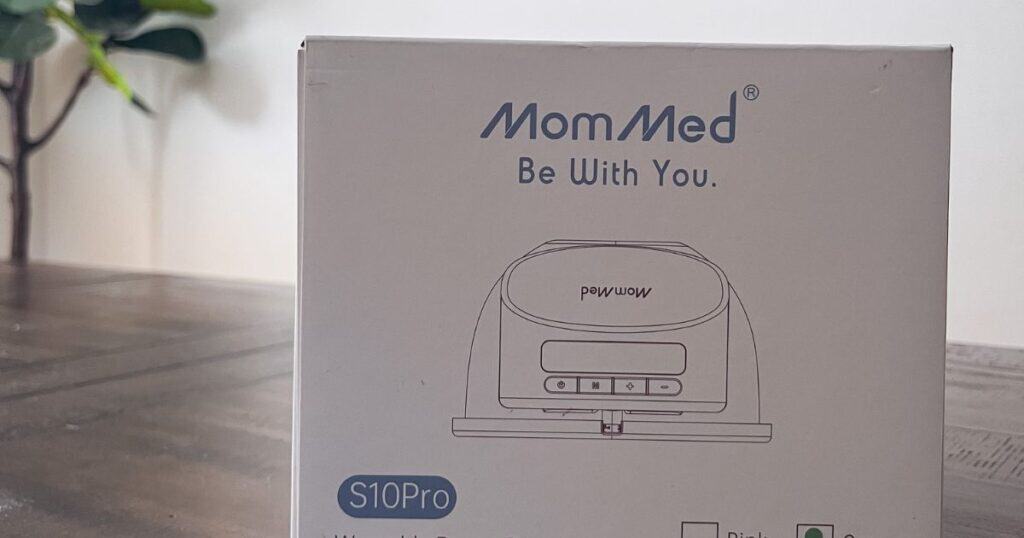Breastfeeding A Sick Baby: Everything You Need To Know
This post may contain affiliate links that I may receive a commission from if you click & buy. In addition, the information on this site is NOT intended to be medical advice. See my full policy for more information.
For many mothers, breastfeeding is a challenge, but oftentimes moms find they get into a great flow and find their groove in breastfeeding. Enter: A Sick Baby…. and everything changes.
Breastfeeding a sick baby presents its own list of unique challenges, but it can also make you question if you’re doing the right thing, what the right thing actually is, and if breastfeeding your baby while sick is actually helping (spoiler alert: it is).
Couple that with the hordes of misinformation, and the well-intended advice from every second person (Facebook mom groups… I’m looking at you…), and it’s easy to see why so many moms question their every move rather than sticking with their intuition.
Below I’ve covered just about everything you need to know about breastfeeding your sick baby, with information that is evidence-based and up-to-date with current practices, and will help you to make informed decisions on how to best care for both you and your baby.
**Please remember, this article is not nor intended to be medical advice. If you need expert support in this area, we always recommend contacting your healthcare provider or Lactation Consultant for help.**
Trust Your Mom Instinct
First and foremost, you need to trust your mom instinct. You know your baby best and you know what is and isn’t normal for them.
You might not even be able to actually articulate what it is that is different or that is ‘wrong’ but you may just have a feeling that something isn’t right. Trust that.
Many healthcare providers put a lot of trust in a mom when she says ‘something isn’t right’, they understand that moms are often right about these things.
While it may be tempting to constantly monitor your baby, checking their temperature, and trying to count their breathing rate (which are important, but not always the easiest things to do), pay more attention to asking yourself ‘does this seem normal for my baby?’.
Is Breastmilk Still Good For My Baby If They’re Sick?
Yes! Absolutely, without a doubt. When a baby is sick, it’s even more important that they are not separated from their mom. A mother’s milk meets all of a baby’s needs, and their breast milk changes in response to their baby’s illness, neat huh?
The World Health Organization supports that human milk is the best possible nutrition for babies and can provide antibodies to a range of common illnesses.
How Often Should I Breastfeed My Sick Baby?
Breastfeeding on demand rather than scheduled feeds is always the best thing to do, and your breastfed baby may have big changes in how often they want to feed. This can sometimes be one of the early signs of a minor illness.
Breastfeeding your baby as they need is the best way to help support their immune system, and can be incredibly beneficial in the early stages of fighting off stomach bugs, cold symptoms, and can even help them be more resistant to bacterial infections.
Do Breastfed Babies Nurse More When Sick?
If you find your sick baby nursing constantly, it can be alarming as you may start to worry that your milk production is decreasing and your baby isn’t getting enough milk.
This is rarely the case and if you are concerned, seeing help from a lactation consultant who is specialized in feeding babies, can be more beneficial than seeing your regular health care provider.
Babies often need additional fluids when they are sick, and breastmilk provides this. You may find your baby nurses frequently when they’re unwell, in a similar way they do when they are having a growth spurt, as this frequent nursing is their way of increasing your milk supply and keeping themselves hydrated.
You may also find they nurse more frequently, but for less time, or nurse at different times than usual.
This is because the foremilk, which is the first milk a baby receives when they’re feeding, has a higher water content than the fatty hind milk, and can help keep them more hydrated without drinking as much milk as usual.
It’s also important during this time that a breastfeeding mother ensures she is well hydrated too! Drinking a lot of fluids during this time is a good idea, and getting plenty of rest are some of the best ways to help maintain your milk supply.
If you’ve got a sick infant, don’t wake them to check their temperature. Instead, use the Exergen Temporal Baby Thermometer! It’s safe, easy to use, and has made our days with sick babies & toddlers so much easier to ensure our littles get the rest they need.
What Do I Do If My Sick Baby Is Refusing To Breastfeed?
This is a really good time to remember that babies aren’t just little machines programmed to eat and poop at regular intervals.
Everything your baby does is a form of communication, and if your baby is refusing to breastfeed, it may just be that they don’t feel well enough to feed at that time.
Think about how you feel when you are unwell. Would you want to feed regularly?
Ear infections and sore throats may cause your baby to want to nurse less because it hurts, and a runny nose or stuffy nose may make cause difficulty breathing due to a blocked nose (they also may stop feeding frequently and drop their latch). Trying different breastfeeding positions can sometimes help with this.
While it can be concerning when your baby is refusing to breastfeed, especially if they’re exclusive breastfeeding, it may simply be they don’t have much appetite while they are unwell. Try and keep to your normal breastfeeding routine until your baby’s appetite returns.
This can also be a good time to practice some skin-to-skin contact with your baby. Rest your baby on your bare chest giving them easy access, and allow them to nurse or simply latch without feeding if they would like.
Skin-to-skin time with your baby can also help regulate their body temperature, regulate their heart rate and breathing, and of course, provide much-needed love and cuddles to your sick babe (as well as an opportunity for you to just sit and rest).
If you’re worried about your milk supply during this time, or if you are finding you’re feeling uncomfortable, you can use a breast pump to relieve discomfort and/or pump at times your baby would usually feed. (This milk can be saved and you may notice is even a different color to your milk when your baby is not unwell).
Does Breastmilk Help My Baby With Vomiting And Diarrhea?
One of the main concerns with babies who are unwell with vomiting and diarrhea is the risk of dehydration (which is made even more challenging by the fact that babies often don’t show signs of dehydration until they are very unwell).
NOTE: Seek medical attention for your baby if they are:
- under 3 months old with vomiting and diarrhea
- showing signs of dehydration (no tears when crying, decreased wet diapers, dry lips, sunken fontanelles)
- has had vomiting and diarrhea and/or fever for longer than 24hrs
Not only is breastmilk beneficial for hydrating your sick baby, but it is also helpful in rebuilding sensitive gut flora that is disrupted during bouts of vomiting and diarrhea.
One study shows a direct link between the increased levels of sIgA (secretory Immunoglobulin A) in a mother’s breastmilk nursing a sick baby (and lower levels when babies are well). This antibody response is beneficial for babies with gastrointestinal upset, such as vomiting and diarrhea.
This is just one example of the mountains of studies that support the role that breastmilk plays in supporting the immune response in babies.
Does Breastmilk Help My Baby Fight A Cold?
In short, yes, it sure can. Breastmilk provides your baby with a whole host of antibodies that can help fight a cold and alleviate the symptoms that go along with it.
Breastmilk contains immunoglobulins and immune factors that help protect your baby from infection. It also contains interferon, which helps activate body cells to fight against viruses (such as those that cause colds).
When your baby is fighting a cold, the important thing to remember is frequent feeding (even if it is shorter and/or less frequent than normal). You may also want to offer more comfort feeds during this time to provide your baby with extra warmth and snuggles (as well as needed hydration from the breast milk).
And if you are concerned about your milk supply, remember, as mentioned previously, pumping during times when your baby isn’t nursing can help to keep your supply up.
Can Breastfeeding Reduce A Fever In Babies?
One of the main things to remember about fever in babies is that most fevers will resolve on their own with time and some studies suggest that self-limiting fevers can be beneficial in fighting off infection and illness in children.
However, breastfeeding can provide a range of benefits for your feverish baby, including comfort.
Breastmilk is known for its anti-inflammatory and analgesic effects and can help to reduce a fever in your baby by providing needed hydration, as well as reducing discomfort associated with a fever.
It is important to note that if your baby’s fever persists or gets worse, you should seek medical attention.
What To Eat When Breastfeeding A Sick Baby
It is important to take care of your own nutrition when breastfeeding a sick baby. Breastmilk production relies on adequate calorie and nutrient intake, which can often be forgotten in the midst of caring for a sick baby.
Make sure you are getting plenty of protein, carbohydrates, and healthy fats in your diet (think lean meats, whole grains, nuts and seeds, eggs, fruit, and vegetables), whenever you can. You might need to enlist the help of a friend or family member to cook a meal for you or grab some nutritious snacks.
You should also drink plenty of water throughout the day to stay hydrated. Breastfeeding already requires a higher fluid intake, but increasing how much you drink when your baby is unwell can ensure you maintain your milk supply and stay hydrated yourself.
In addition to this, you can incorporate specific foods that have known immune-boosting properties. These include garlic, ginger, turmeric, honey, lemon juice, and coconut oil.
And regardless of if you’re feeling run down or not, don’t forget to get some rest!
Taking a few moments for yourself each day can help you stay healthy and provide the best care possible for your sick baby.
Is It Worthwhile Saving Colostrum For Your Sick Baby?
Colostrum is a thick, yellowish liquid produced by the mammary glands in the early days of breastfeeding. It is packed full of immune-boosting properties and antibodies that can help build up your baby’s immune system and provide resistance against infection.
For this reason, it can be beneficial to save some additional colostrum for when your baby is sick.
Provided it is stored correctly, frozen colostrum can last for up to 12 months, and can be used at any time during the first year of your baby’s life.
Don’t stress if you didn’t save any colostrum, breastmilk will still provide a huge amount of immune support to your sick baby.
Breastfeeding a sick baby can provide a range of benefits, from comfort-feeding to immune support.
But it is important to remember to take care of your own nutrition and hydration too.
Don’t forget to get some rest when you can, and if your baby’s fever persists or gets worse seek medical attention as soon as possible.
Final Thoughts on Breastfeeding a Sick Baby
Breastfeeding has an amazing list of benefits for infant babies, especially when they’re sick.
As long as you aren’t too sick yourself and your baby isn’t needing to go see the doctor for their illness, breastfeeding your sick baby is a great idea.
Even if it wasn’t for the benefits, breastfeeding brings babies so much comfort. It allows them to be snuggled up close to you (their favorite safety net) and provides some soothing measures amongst being sick (which is never fun for anyone, especially our sweet babies).
Read more breastfeeding articles here:
20 Breastfeeding Hacks and Secrets Every New Mom Should Know
The Ultimate MomMed S21 Wearable Breast Pump Review
S10 Pro Hands-Free MomMed Breast Pump REVIEW
10 Tips for Successful Breastfeeding for New & Expecting Mothers
Momcozy Breast Pump Review for the S12 Pro (All You Need to Know!)
Body Armor Drink and Breastfeeding









